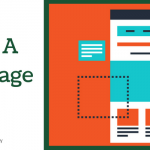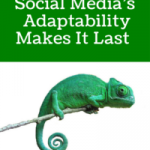Artificial intelligence is transforming digital marketing — for better and for worse. Today, I’d like to dive into that and take a look at all the ways AI has helped make marketing better, as well as some of the ways it’s making things worse.
First, the positives:
AI is great for research.
Research has always been the backbone of effective marketing. How do we reach our target audiences most effectively? How do we even know who to reach out to? AI research tools can help you gather information quickly so you can dedicate more of your time to strategy. I specifically like Perplexity for this since it backs up everything with a source.
Better brainstorming.
As I’m sure we all know, creativity isn’t always easy to summon on command. When strategizing or writing, we’re sure to run into creative blocks. This is where AI can be a real lifesaver. Sometimes, a little inspiration is all you need to break out of that creative rut.
Of course, it’s not all positive news, and many marketers use AI in ways that are actually harmful. Here’s how:
AI-Generated Content
To be clear, it’s not inherently bad to use AI in the content creation process. But when writers start relying on AI-generated content to replace their own writing, that’s when things start to go wrong. Sure, it’s faster, but you’re missing out on all the nuances and perspective that make it special.
Not only is AI-generated content often uninspiring, but it can also cause writers to get rusty when they rely on it too much. It’s like any skill – if you don’t use it, you lose it. And don’t even get me started on AI images and videos. Have you seen some of those AI-generated faces? Nightmare fuel.
Reputational Concerns
There are still some very valid ethical issues surrounding generative AI. These models are built using data from actual humans, scraped from across the internet. Through a certain lens, that means everything AI generates is plagiarized. Online audiences are very aware of these ethical issues, and they will hold you accountable. If you use AI-generated images, for example, you can expect social media platforms to label them as such, and you can expect a decent chunk of your audience to be turned off by it.
AI is only becoming more integrated into digital marketing as time goes on. As you’ve seen, the results have been a pretty mixed bag so far. Just remember, AI is a tool, not a replacement for human creativity and insight. Use it to enhance your work, not to do your work for you. And always, always keep your audience in mind. They’re looking for authentic, engaging content – not something that sounds like it was written by a very smart toaster.




